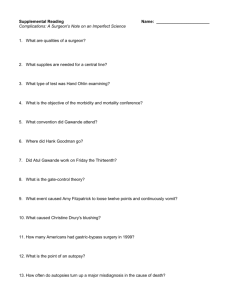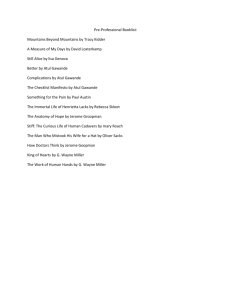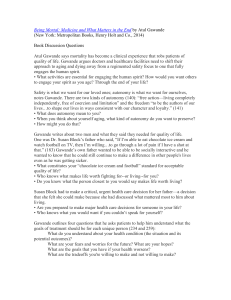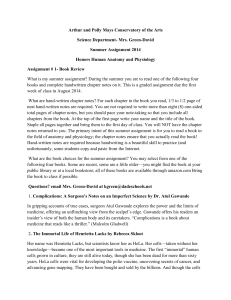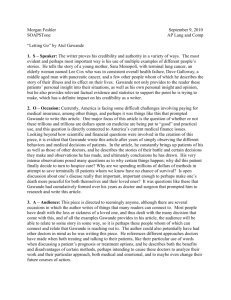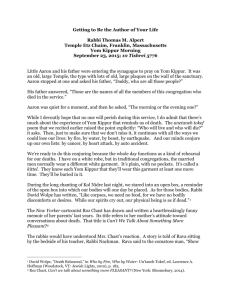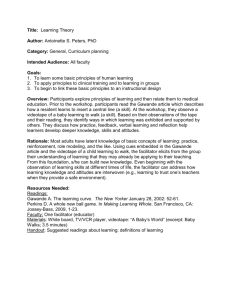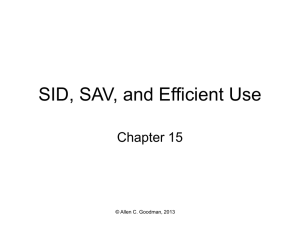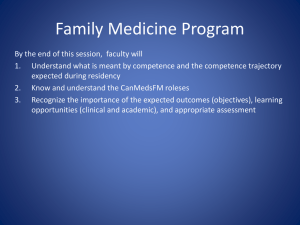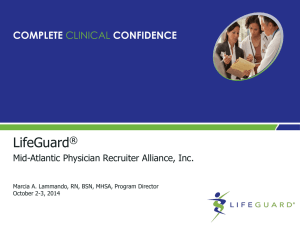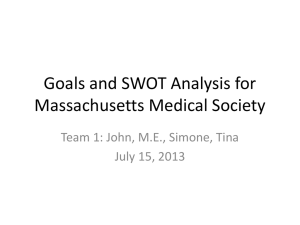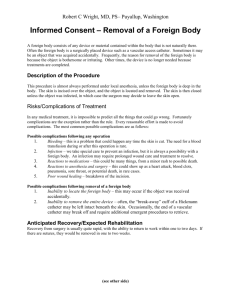Complications: A Surgeon`s Note on an Imperfect Science by Atul
advertisement
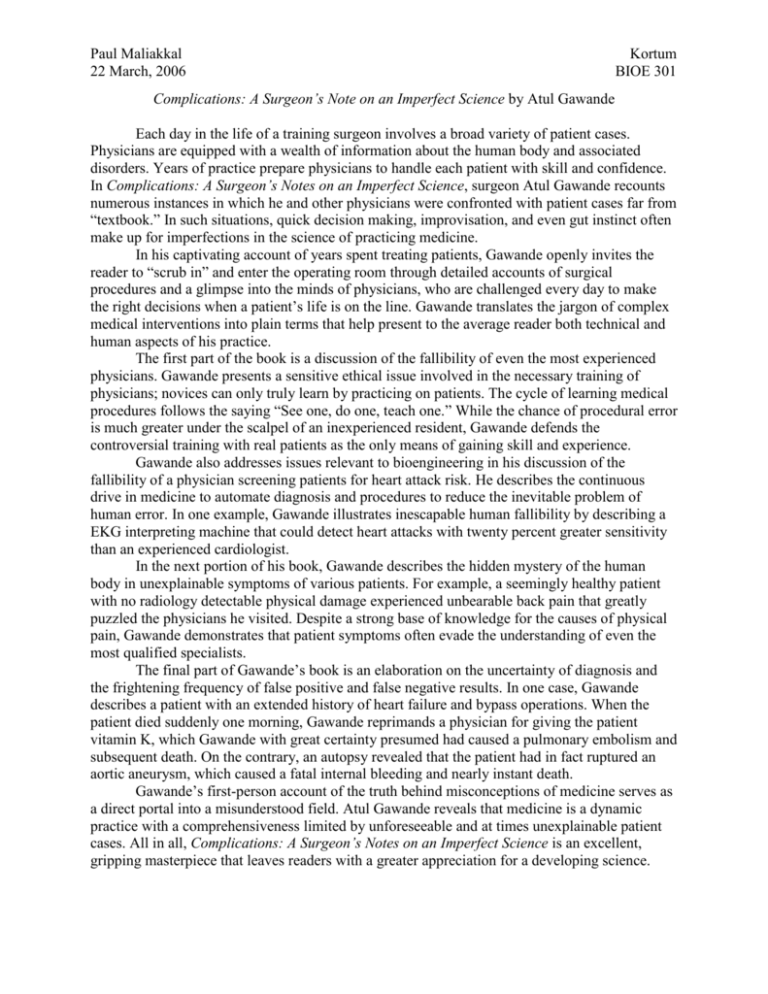
Paul Maliakkal 22 March, 2006 Kortum BIOE 301 Complications: A Surgeon’s Note on an Imperfect Science by Atul Gawande Each day in the life of a training surgeon involves a broad variety of patient cases. Physicians are equipped with a wealth of information about the human body and associated disorders. Years of practice prepare physicians to handle each patient with skill and confidence. In Complications: A Surgeon’s Notes on an Imperfect Science, surgeon Atul Gawande recounts numerous instances in which he and other physicians were confronted with patient cases far from “textbook.” In such situations, quick decision making, improvisation, and even gut instinct often make up for imperfections in the science of practicing medicine. In his captivating account of years spent treating patients, Gawande openly invites the reader to “scrub in” and enter the operating room through detailed accounts of surgical procedures and a glimpse into the minds of physicians, who are challenged every day to make the right decisions when a patient’s life is on the line. Gawande translates the jargon of complex medical interventions into plain terms that help present to the average reader both technical and human aspects of his practice. The first part of the book is a discussion of the fallibility of even the most experienced physicians. Gawande presents a sensitive ethical issue involved in the necessary training of physicians; novices can only truly learn by practicing on patients. The cycle of learning medical procedures follows the saying “See one, do one, teach one.” While the chance of procedural error is much greater under the scalpel of an inexperienced resident, Gawande defends the controversial training with real patients as the only means of gaining skill and experience. Gawande also addresses issues relevant to bioengineering in his discussion of the fallibility of a physician screening patients for heart attack risk. He describes the continuous drive in medicine to automate diagnosis and procedures to reduce the inevitable problem of human error. In one example, Gawande illustrates inescapable human fallibility by describing a EKG interpreting machine that could detect heart attacks with twenty percent greater sensitivity than an experienced cardiologist. In the next portion of his book, Gawande describes the hidden mystery of the human body in unexplainable symptoms of various patients. For example, a seemingly healthy patient with no radiology detectable physical damage experienced unbearable back pain that greatly puzzled the physicians he visited. Despite a strong base of knowledge for the causes of physical pain, Gawande demonstrates that patient symptoms often evade the understanding of even the most qualified specialists. The final part of Gawande’s book is an elaboration on the uncertainty of diagnosis and the frightening frequency of false positive and false negative results. In one case, Gawande describes a patient with an extended history of heart failure and bypass operations. When the patient died suddenly one morning, Gawande reprimands a physician for giving the patient vitamin K, which Gawande with great certainty presumed had caused a pulmonary embolism and subsequent death. On the contrary, an autopsy revealed that the patient had in fact ruptured an aortic aneurysm, which caused a fatal internal bleeding and nearly instant death. Gawande’s first-person account of the truth behind misconceptions of medicine serves as a direct portal into a misunderstood field. Atul Gawande reveals that medicine is a dynamic practice with a comprehensiveness limited by unforeseeable and at times unexplainable patient cases. All in all, Complications: A Surgeon’s Notes on an Imperfect Science is an excellent, gripping masterpiece that leaves readers with a greater appreciation for a developing science.
